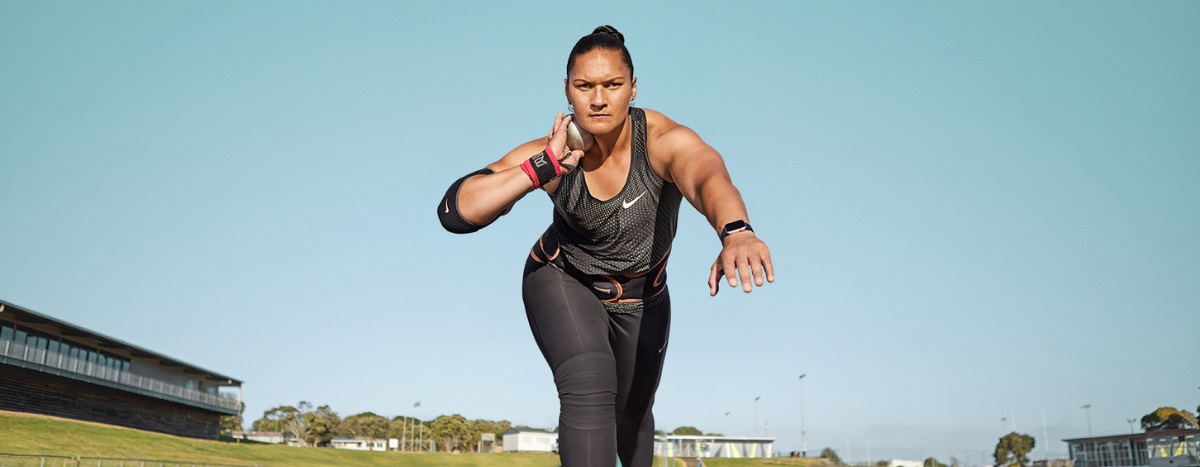Life Insurance
Lump sum payment if you were to pass away or are diagnosed with a terminal illness.
AIA Vitality NZ - 5 min read
25 August 2021
I’ve been blessed with an incredible career. It’s been quite a journey, filled with life-changing events.

Each of these experiences has made me who I am today – from losing my mother and father, meeting my husband and getting married, going through IVF to have our children, undergoing two caesarian sections and having the chance to represent Aotearoa on many occasions.
In particular, the last five years have been an incredible roller coaster full of blood, sweat and tears. I never envisioned that having children was going to be as difficult as it was.
After Rio in 2016, I discovered I had endometriosis and wouldn’t be able to conceive naturally. I went through IVF treatment, gave birth via C-section and six months later, I was competing at the Commonwealth Games.
After the games, my husband and I decided we wanted to try for another child. Doctors had told me I would experience menopause by my early-40s – it was now or never. Again, I fell pregnant through IVF and gave birth to my son via a second C-section in March 2019.
By this stage, my body had been cut so many times (I’ve also had eight sports-related surgeries during my career to date). I wasn’t sure if Tokyo was going to be an option after my second C-section, however I kept training, gradually increasing the intensity as my body gained strength and then I qualified in January 2020 at my first competition of the season.
I was asking myself, “Should I jump on this journey again?” I needed to take some time to process and acknowledge what I was feeling. I was experiencing some anxiety – thinking, “Am I still able to do this?”
I didn’t want to go to Tokyo and be a number. That’s not who I am. I wanted to compete for my country to the best of my ability, ultimately aiming for a medal. When the pandemic postponed everything until 2021, it was a blessing in disguise. It gave me more time to train – to be the best I could be.
I promised myself that if I went on the journey, I would do a bloody good job. When I stepped up to compete, I knew – in my heart of hearts – I had done everything I could to prepare for the moment. I was able to stand in the circle wearing the silver fern and represent Aotearoa with pride. With delight and honour, I was able to bring another medal home for my country.
To come away with a bronze at the age of 36 was a humbling experience – one which I’ll treasure forever. I’ve won gold twice, and this felt like a gold-medal result to me. To reflect on the past five years and everything it took to get to that point: it was sheer elation, pure joy. I couldn’t hold it in – I was crying tears of happiness. I wanted to share my inspiration – my two babies – with the whole world.
Of course, what goes up must come down. I was reliving that amazing moment with my team for 48 hours, but then I started coming down. It was one of the hardest times I’ve had while being away. I was feeling alone, dealing with this sense of anticlimax when I just wanted to be home with my family. It’s a common experience for athletes of a high level..
In the lead up to a major championship, you lose your appetite – you don’t want to sleep. One half of you wants everything to hurry up – and the other half doesn’t. Then, after the event, there are always comments on an athlete’s performance – whether on social media or otherwise. It can be damaging, and I don’t think people realise that. To describe the pressure you carry – from your country, your sport, your coaches, your family and yourself – is hard to do.
Then, you come out the other side – you see the light – and you find your balance. You start to sleep better, you eat better. You become a normal human being again.
When I’m training and competing, I give it my all. When that finishes, I give my family my all. I also try and save some space to look after myself, too. I can say quite happily we’ve managed to make it work as a family.
My kids are now two and three years old. They have no idea what mummy has done. All they know is that I come on the TV from time to time. That’s the beauty of living this dream – to have this privilege.
Culturally, we’ve started a dialogue about what it means to be a mother and an athlete. When I started my career, you didn’t want to tell your sponsors if you got pregnant because you might get dropped. Now, that’s not the case. More people are open to the conversation – and we’re seeing more female athletes coming back from having kids and performing at an elite level.
I hope to continue to inspire female athletes who’d love to have a child – who want to start a family. When you look back, sport will be just a small part of your life. When all is said and done – when no one cares about Valerie Adams anymore – my family will be there.